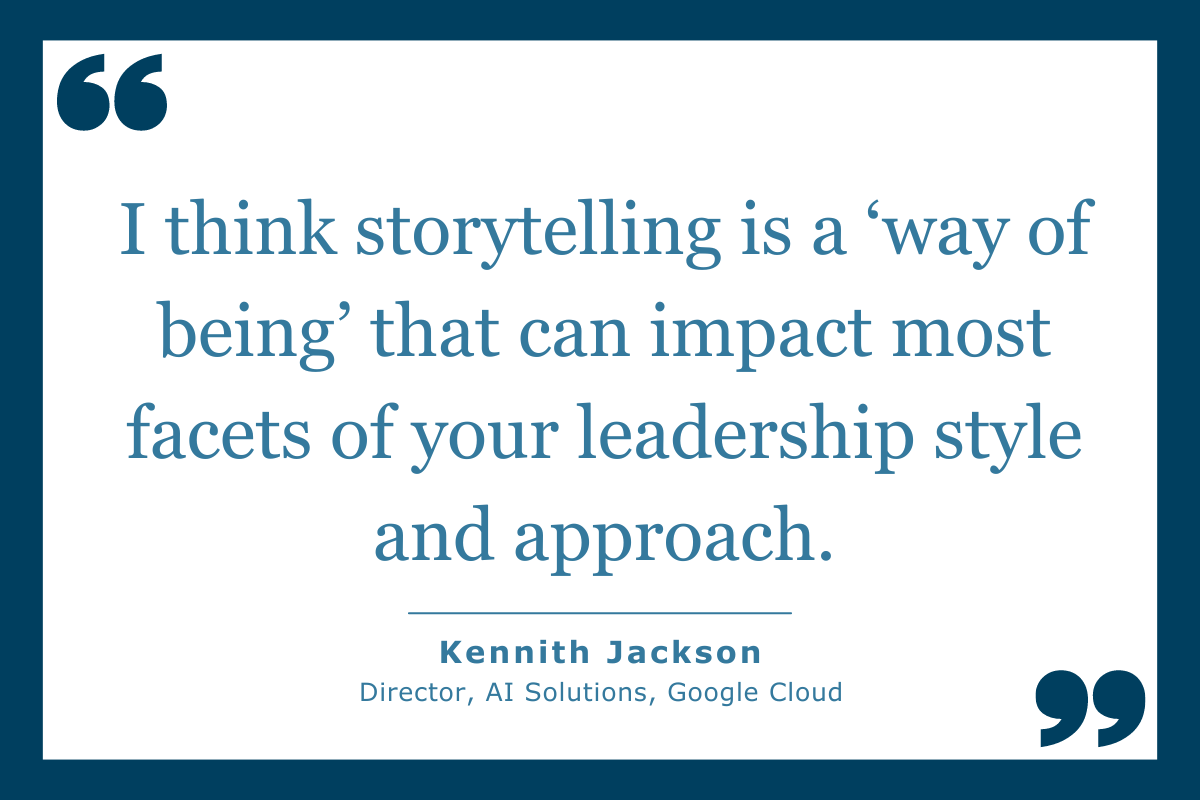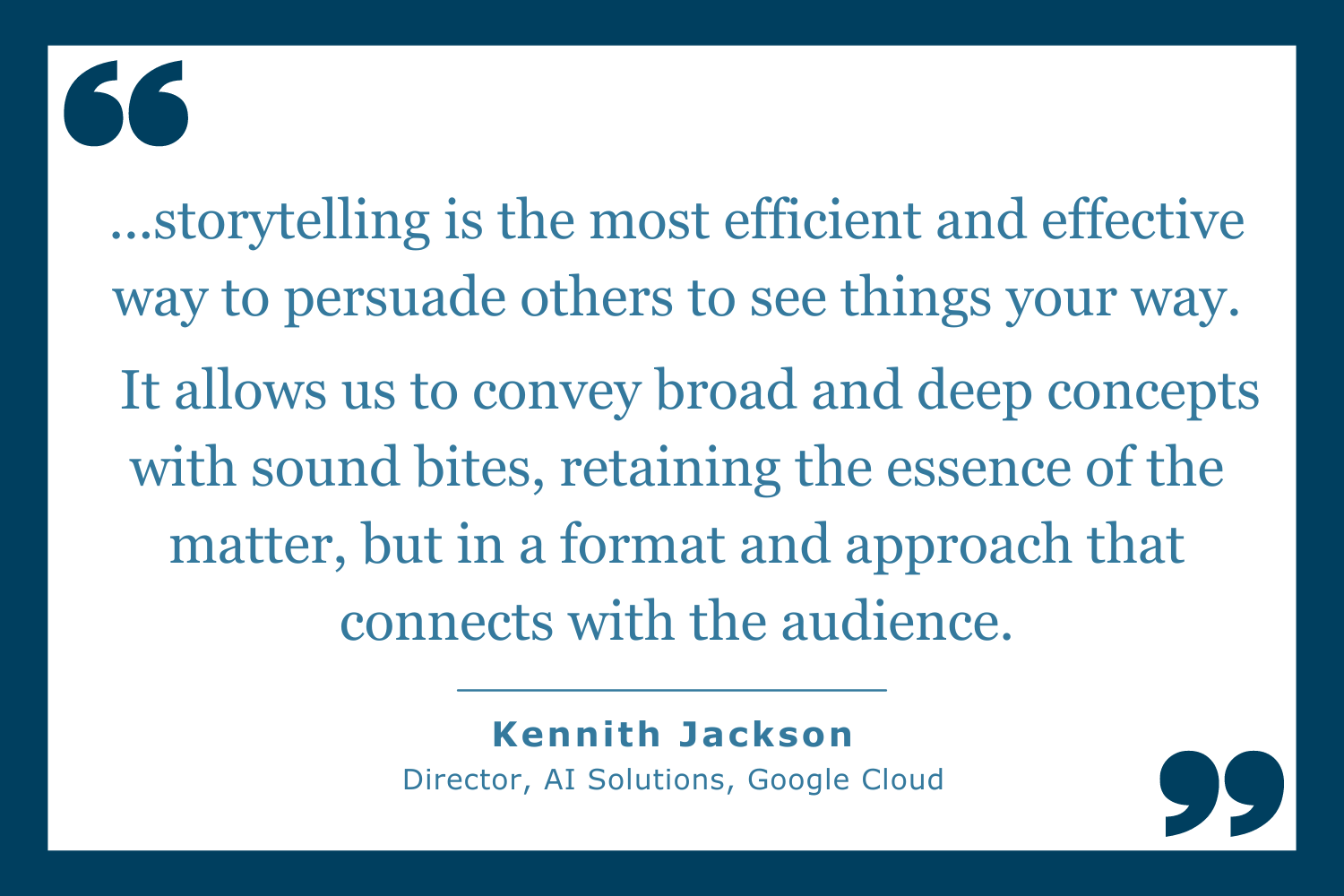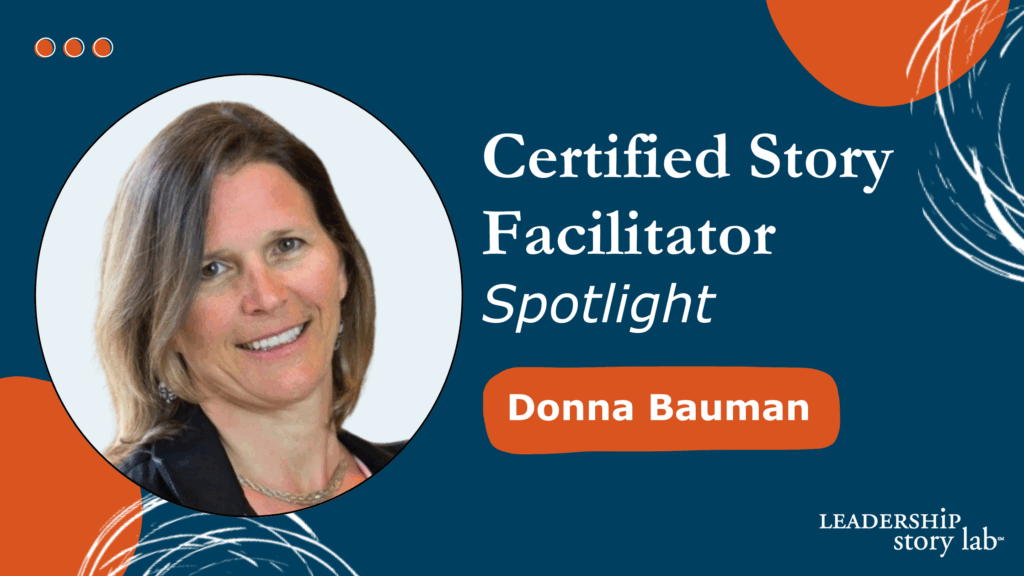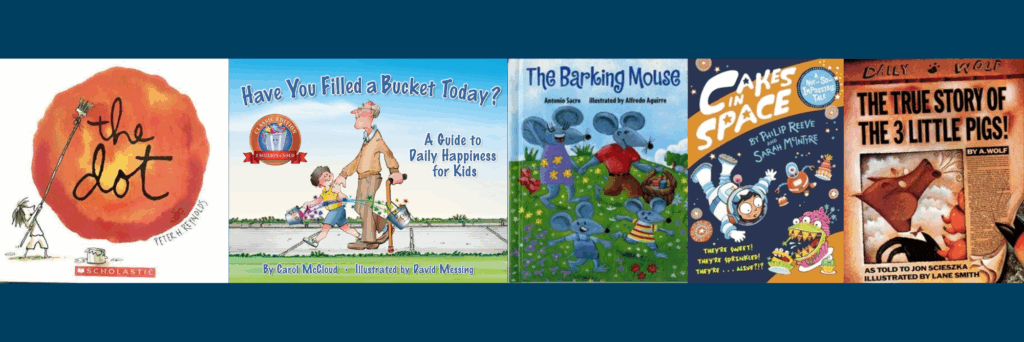September 30, 2024 / Esther Choy
Kennith Jackson (KJ), Director of Professional Services, AI Solutions at Google, realized that storytelling was a crucial leadership skill. Specifically, his team experienced a major transition, and he needed to be able to explain their purpose and impact persuasively. So he came to Leadership Story Lab for coaching.
After working with me for 12 weeks, we had a wonderful conversation about his leadership journey. I wanted to share some of his key insights because he so clearly explains the nuances of the transformative power of leadership storytelling.
Thank you, KJ, for working with Leadership Story Lab. It’s been wonderful to journey alongside you. Here are highlights from our conversation.
Esther Choy: I want to dive right in, KJ. First of all, what prompted you to seek coaching on storytelling? How did you know that storytelling was the leadership skill you needed?
KJ: Our organization has brought in a lot of new leaders over the last several years and they have placed a high value on being able to articulate complex topics in straightforward ways that emphasize business value and impact. Because they are new, I thought it would be beneficial to be able to communicate my work and my team’s work and impact more effectively. Generally, as a senior leader I also found that I wasn’t connecting as easily with other leaders when the organization was smaller and less complex. Storytelling was a way to more quickly and easily find common ground.
EC: How does working with Leadership Story Lab compare to other coaches and training you have experienced while seeking new leadership skills?
KJ: I feel like I’m in a Michelin star restaurant enjoying a 12-course meal.
The sessions are very structured, yet tailored with a clear outcome and goal in mind. I felt like I was learning a new skill as well as getting leadership coaching at the same time. I’ve found other types of coaching more reactive or more helpful when I have a specific goal in mind (e.g. planning for how I’m going to get that next promotion). I think storytelling is a “way of being” that can impact most facets of your leadership style and approach.

EC: What have been your main takeaways from our coaching sessions?
KJ: After 12 weeks of coaching I can say without a doubt I understand myself better. For me my own “story” was just a jumble of memories, some of them painful, some of them pleasant but few that I spent much time recalling or figured had much value to my current situation. Understanding my own story has been a liberating experience and has created a foundation that I think I had lost amidst a torrent of life changes that happen to most of us after our 20’s.
This foundation has created an opportunity to be more creative and expressive at work and in my own writing. It has allowed me to be more vulnerable and authentic to those around me. I feel it has helped me to turn the corner with my leadership and my team. I’m able to better articulate my team’s accomplishments and values and paint a picture for “what’s next” in terms of growth for my team.
And it’s given me the framework, tools and practice to feel more confident talking at an executive level. As an executive, we are in the business of persuading and I was hitting a brick wall. I can see those barriers falling all around me as I tell my story and my team’s story! Inevitably I know so much more than our audience and storytelling is the most efficient and effective way to persuade others to see things your way. It allows us to convey broad and deep concepts with sound bites, retaining the essence of the matter, but in a format and approach that connects with the audience.

EC: You share that “barriers falling all around me” as you tell stories. Can you share one specific situation where you noticed this happening?
KJ: I’ve had several conversations recently where I’ve told the story about the impact I’ve had on the business with a small and scrappy team. These stories have allowed me to convey a lot of complexity to senior leaders who seem to now remember me more as a high performer and my impact.
I also recently told the “origin story” of my current team to my entire team (it was a messy and difficult road). This level of vulnerability helped me to deepen my relationship and commitment from the team. I also received some feedback from some of the team saying they really appreciated my story and how they had no idea that I had had to overcome so many challenges to get us to where we are today.
EC: What is one thing you wish you knew before starting the storytelling coaching process?
KJ: I think it took me too long (in my career) to accept and appreciate the importance of storytelling in business. I tend to be very data driven and come from a business culture that is data first and where letting the data and your work speak for itself is the norm. While that may work in a smaller organization and one with a more homogenous blend of leaders, it becomes less effective the higher up in the organization you go, the larger the organization becomes and the more external leadership the business hires.
—
Do you want experience transformational power of leadership storytelling like KJ? Are you ready to unlock this superpower at work? Leadership Story Lab is here to help. We offer coaching, storytelling training and more. Reach out today!
Better Every Story
Leadership Transformation through Storytelling
"This is an amazing and insightful post! I hadn’t thought of that so you broadened my perspective. I always appreciate your insight!" - Dan B.
Get Esther Choy’s insights, best practices and examples of great storytelling to your inbox each month.





